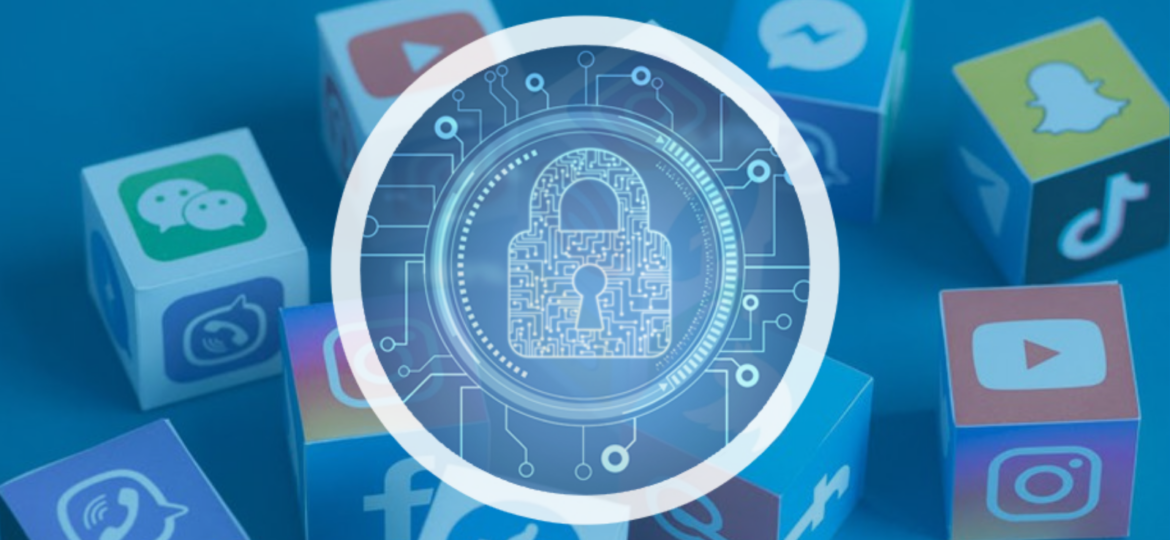
Last Updated on febrero 9, 2023 by anytimedigital
As businesses become more reliant on social media, it’s important to prioritize security. With more and more hackers targeting companies, it can be nearly impossible to stay secure online. To prevent this, it’s essential for businesses of all sizes to take proactive steps towards securing their social media accounts. From two-step authentication protocols through ethical guidelines for employees. In this article, we’ll discuss 12 tips that business’s can use to protect their Redes Sociales accounts. Don’t miss out on this comprehensive list of strategies that will help keep your company safe strengthen their security posture.
The importance of protecting business social media accounts
Protecting your business’s social media accounts is more important now than ever, especially for small businesses. It is estimated that a single cyber attack costs an average of $200,000. A cost no business can afford! All businesses regardless of size should take steps to protect their social media accounts from all platforms. Therefore, they don’t fall victim to these attacks. Some of the most vulnerable social media platforms on the market right now are Facebook, Instagram, Twitter and YouTube. These have recently seen the most hacking issues amongst all the digital platforms out there. According to Zerofox, nearly 30 attempts to takeover corporate social networking accounts occur per year for each institution.
A business’s social media account may be hacked by either a cybercriminal or a disgruntled employee. Therefore, crating some bad consequences. For example, reputations can be ruined, customer information can be stolen and data breaches may occur. As a result, causing severe damages for any company. To protect against these possible threats, businesses should always monitor their accounts closely and update their passwords regularly. By taking these essential security precautions, businesses can protect their assets and safeguard against intrusions. Furthermore, providing greater peace of mind for themselves and their customers.
Business Vulnerabilities
Cybercriminals
Cybercriminals increasingly threaten today’s businesses in a variety of ways. One way they exploit a business’s vulnerability is by gaining unauthorized access to sensitive information. Cybercriminals are adept at finding weak points in security. For instance, default passwords, unsecured networks, or expired software. Once the criminals gain access, they can use the information for malicious purposes such as identity theft and financial fraud. In addition to stealing sensitive data, these cybercriminals could also launch malicious campaigns to damage a company’s reputation and credibility. These types of attacks can drastically reduce public trust in an organization. Therefore, resulting in both short-term and long-term losses.
Disgruntled employees
In an age of digital transformation, businesses must protect their enterprises from disgruntled former employees. While this type of security is often overlooked by companies with limited resources or smaller operations, it is integral for all businesses. Former employees are uniquely positioned to exploit any vulnerabilities in order to damage the company’s reputation. In addition, they will look for ways to compromise a business more than ever before. And, their past experience working within the company grants them access points outside of typical cyber-attack channels.
Businesses need to protect themselves by keeping employee departures on good terms. Additionally, having answers ready if they ever decide to leave while ensuring they do not take confidential information with them. Managers should also ensure that especially valuable logs, documents, and user accounts are regularly rotated round. Therefore, a rogue former employee cannot gain access. In addition to protect against malicious attacks, businesses also need to protect their public social media profiles.
12 tips to protect Your Business social media accounts
There are 12 essential tips business owners can use to protect their social media accounts. Therefore, providing an added layer of security and hopefully peace of mind.
1. Two-factor authorizations
2. Strong passwords
3. Change passwords
4. Locking out users
5. Educate employees
6. Privacy settings
7. Wi-Fi networks
8. Public sharing
9. Monitor online reputation
10. Back up all digital content
Protecting your business from a digital disaster is crucial. Digital content such as data, documents and photos are important to protect and back up. Computers and servers protect the most important data for the everyday operations of your business. For instance, client contact information, financial records, and employee information. Having multiple copies in separate locations reduces the risk of losing it all if something were to happen. For example, a hardware failure or cybersecurity breach. Ideally, businesses should regularly create backups with daily or weekly duplicates stored both offsite and on cloud-based storage services. Social media profiles also play an important role in businesses’ overall branding strategy. Therefore, they should be backed up regularly to protect against malicious attacks by hackers or other disruptions like account suspensions. This can cause costly downtime in terms of reputation management. Setting up cohesive backup plans often begins with assigning tasks to team members.
11. Monitor Incoming Messages
Social media platforms such as Facebook Messenger are helpful tools to interact with customers and partners. However, great caution should be taken with incoming messages. Hackers can take control of user accounts and use them to attack a business by sending malicious links or attachments. As a result, this could lead to data damage and financial losses. To protect themselves, it is important for companies to never click on any links or download any files contained in a suspicious message. For example, someone may send a message from an account claiming to be a partner or customer. However, the email address does not match the name given. This would be an indication that you should not click on it. By avoiding suspicious links, businesses can protect their systems from any potential harm caused by a hacker infiltrating messenger accounts.
12. Connect with trusted users
One of the most important steps a business can take is to only connect with trusted users on social networking sites. It is essential that businesses protect their accounts from imposters. They may block authentic user interaction or cause other damaging events. Moreover, allowing access only to those properly vetted is key for companies wanting to protect their security. For example, when creating accounts for new employees or vendors it should be made sure that the user created has an email address or other authentication method associated with them. In addition, businesses should review existing connections periodically just like one does when changing passwords regularly for added security measures.
En conclusión

